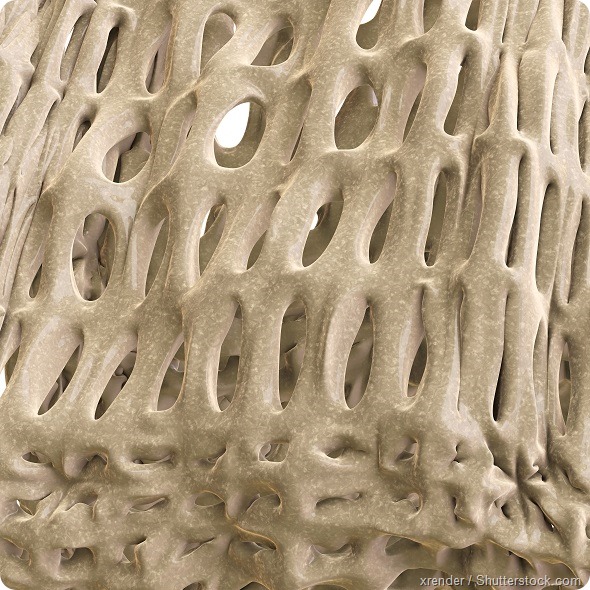By Sally Robertson, BSc
Researchers from The Scripps Research Institute (TSRI), Florida, have reported a novel therapeutic approach that could promote the formation of new bone cells in people suffering from bone loss.
The scientists studied a protein referred to as PPARγ, which is a regulator of glucose metabolism and fatty acid storage. They looked at the impact of PPARγ on mesenchymal stem cells, which are cells that have the ability to differentiate into several types including fat, bone, connective tissue and cartilage cells.

The TSRI team already knew that a partial loss of PPARγ promoted new bone formation in a mouse model and decided to design a new drug compound that could mimic this effect by repressing the activity of PPARγ. They combined a variety of structural biology approaches to develop the new agent.
As reported in Nature Communications, when the researchers treated human mesenchymal stem cells with the compound, they observed a significant increase in the formation of osteoblasts – cells that make bone.
Director of the Translational Research Institute at Scripps Florida, Patrick Griffin, says:
These findings demonstrate for the first time a new therapeutic application for drugs targeting PPARy, which has been the focus of efforts to develop insulin sensitizers to treat type 2 diabetes.
“The next step is to perform an in-depth analysis of the drug’s efficacy in animal models of bone loss, aging, obesity and diabetes,” he adds.
As well as providing a potential new therapy for bone loss, the study findings may also have broader implications. David Marciano, lead author of the study, explains that since PPARγ is so closely related to a number of proteins with known roles in disease, these structural insights could be used to develop new compounds for various other therapeutic applications.
We now better understand how natural molecules in our bodies regulate metabolic and bone homeostasis, and how unwanted changes can underlie the pathogenesis of a disease,” he says.
Marciano now plans to make this subject the focus of his postdoctoral work in the Genetics Department at Stanford University, California.